"On the Road" at 50 - Who is Punk's Kerouac?
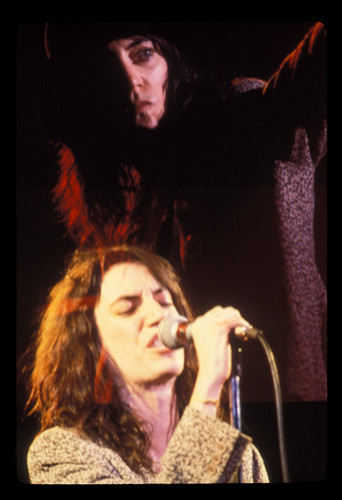
Please, dear friend, DO take the time to click on the title of this post and read the New York Times Book Editor Dwight Garner's NY Times blog, Paper Cuts. Its a piece about Jack Kerouac and the 50th anniversary of the publication of his second novel, "On the Road."
I am one of those people so left of center that I consider the NY Times kind of central-to-right on most issues. My sister on the other hand, finds it the big loud mouthpiece of nasty liberals. Go figure. Anyway, back to the point...in his blog, Garner cites the 1957 review of "On the Road" by Gilbert Millstein as the most important book review the Times ever ran. And Bravo for that!
So many of Millstein's observations about the Beat Generation (so named by Kerouac himself) and the critiques thereof apply to the Punk Generation. In a paragraph headlined The 'Beat' Bear Stigmata, Millstein writes:
Much has been made of the phenomenon that a good deal of the writing, the poetry and the painting of this generation (to say nothing of its deep interest in modern jazz) has emerged in the so-called "San Francisco Renaissance," which, while true, is irrelevant. It cannot be localized.
In punk rock, we cannot localize the big bang birth of punk rock to have occurred in London, New York City, Los Angeles, San Francisco, Australia, Detroit or anywhere. There was definitely a youthful zeitgeist naturally brewing. The Beats had Kerouac as their avatar, and had Allen Ginsberg, Gregory Corso, Neal Cassady and Peter Orlovsky. And although we lump them in with the Beats, William S. Burroughs, Lawrence Ferlinghetti and Charles Bukowski, while contemporaries did not consider themselves Beats, but were definitely part of the San Francisco Renaissance and 50 years later, we just call them the Beats.
So it goes with punk rock, where we have the Sex Pistols, The Ramones, The Dils, The Germs and The Saints as definitive punk avatars of the first wave hailing from cities that each could have birthed punk, we have, as the Beats did, a small, inter-related group of musicians that helped kicked down some important doors to make the world ready for punk.
Patti Smith, pictured above, made the very first punk record out of the New York scene - "Piss Factory," a poetic rant about a dead end job. It would be a couple years before the Sex Pistols would sing about an England with "No Future," voicing the legitimate complaint of legions of youth on the dole in a country with apathetic and complacent leadership.
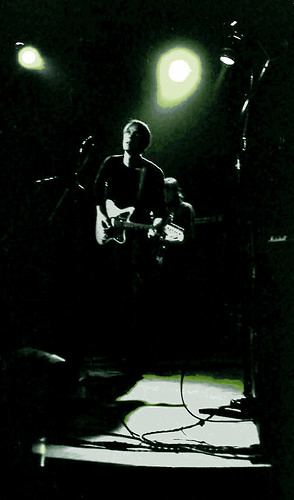
Television were responsible for CBGB becoming the punk rock venue of New York City.
Both Patti Smith and Television's Tom Verlaine are remarkable poets. You don't need to modify that with "rock n roll." They write poetry. Early Television member and punk rock icon in his own right/write, Richard Hell is another poet who came into the spotlight because of punk rock. His "Blank Generation" was genre- and generation-defining as both poetry/lyrics and while the music owed as much to some kind of crazy jazz as it did to rock n roll, it was the way Hell put the elements together and performed it that made it punk. And then there was his distinctive haircut and fashion sense that gave people peering into punk rock an avatar to latch onto.
Another thing that New York Times reviewer Millstein wrote about "On the Road" and Kerouac that resonates for punk rock:
The 'Beat Generation' and its artists display readily recognizable stigmata. Outwardly, these may be summed up as the frenzied pursuit of every possible sensory impression, an extreme exacerbation of the nerves, a constant outraging of the body.
I interrupt myself to interject that this is absolutely the gist of the poetic existence of 19th Century Imagist poet Arthur Rimbaud, whom Patti Smith mentions in her writings, from poetry to lyrics to critical. (Rimbaud was also briefly the lover of and one-off collaborator with Paul Verlaine.) In Rimbaud's "Les lettres du Voyant" he writes to his friends of attaining poetical transcendence or visionary power through a "long, intimidating, immense and rational derangement of all the senses."
When I was a college student listening to Patti Smith's "Horses" on the day of its release, suddenly all the loose ends were tied for me: poetry, rock n roll, Patti Smith, Television and French literature. From that point, I could identify myself as a punk rocker; before that, I was merely a teenaged girl, a college student and budding photographer.
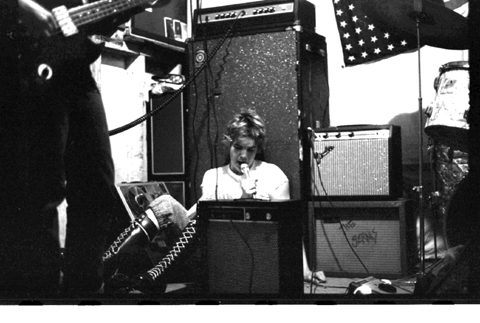
When I met Paul Beahm, before he was Bobby Pyn or Darby Crash we quickly learned we shared the same literary and cultural interests as well as rock n roll favorites.
As the singer for The Germs, Paul/Bobby/Darby unleashed some of the best and brutal poetry that Los Angeles had heard in a long time - and so much of it was founded in that same "derangement of all the senses" that helped Rimbaud transcend. For some, Jim Morrison will always be the Los Angeles band rock n roll poet laureate with the deranged senses, and while the Doors mean Los Angeles to so many people, The Germs and X are the bands that define Los Angeles punk rock poetry. They're the Kerouacs of LA's punk generation.
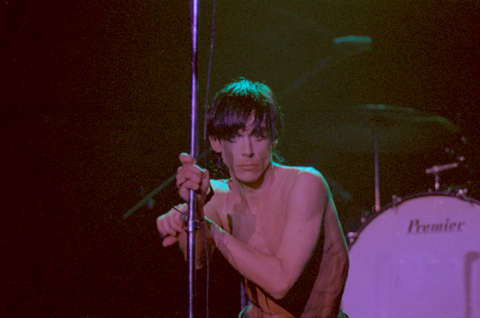
Another inadvertent birth father of punk rock, Ann Arbor's Iggy Pop is a poet in my book. He elevates the basest elements - "I Wanna Be Your Dog" and proclaims in song what everyone feels but doesn't bother to commit to poetry: "I'm Bored." However, for me, "Dirt" achieves Shakespearean heights. To me, its the punk rock equivalent of Mercutio's "I'm hurt" speech in Romeo and Juliet when the jokester is actually not joking.
Iggy's voice is a tad more heroic to me than Mercutio's - but neither character cares in the way that a so-called normal person would care. They're both filled with a personal fire that fuels their combustion. Iconoclasts.
Compare Iggy to the Bard:
Ooh, I been dirt
And I don't care
Ooh, I been dirt
And I don't care
‘Cause I’m burning inside
I'm just a yearning inside
And I'm the fire o' life
Ooh, I've been hurt
And I don't care
Ooh, I've been hurt
And I don't care
‘Cause I’m burning inside
I'm just a dreaming this life
And do you feel it ?
Said do you feel it when you touch me ?
Said do you feel it when you touch me ?
There's a fire Well, it’s a fire It was just a burning
Yeah, alright
Ooh! Burning inside
Burning Just a dreaming
Just a dreaming
It was just a dreaming
It was just a dreaming
Play it for me, babe, with love !
(Dirt, copyright Iggy & the Stooges)

Mercutio: I'm hurt! Curse both your houses!
I am wounded. Has he escaped unharmed? Where is my page?
Go villain, fetch a doctor.
No, it's not as deep as a well, or as wide as a church door,
but it's enough. Ask for me tomorrow, and you'll find me a grave man.
I've been mortally wounded; prepared to leave this world.
It's fitting that a rat would scratch a man to death.
A villain that fights by formal rules.
Why did you come between us? I was hurt under your sword!
Curse both your houses! They have made worms' meat of me.
(Romeo & Juliet, Act 3, Scene 1, William Shakespeare, 1595?)
There are two contemporary rock n roll guys I compare favorably to Shakespeare.
They are Bob Dylan and Jack Oblivian
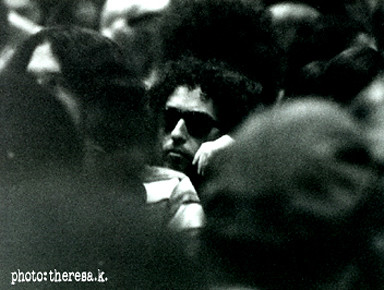
If you want to know why, I think you should just get their records and listen! A hint? Well, its about turns of phrase and committing to poetry things so personal they're universal, and things so banal, they're profound. Its about discovering a language for emotions of all kinds and making it work with an amplified guitar and a vocabulary that makes sense whether you're drunk or sober.
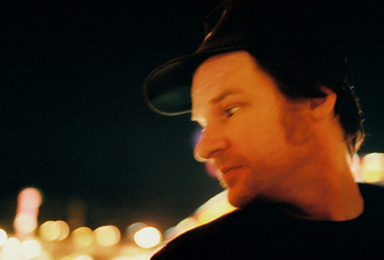
Finally, here's a link to a story that the Boston Globe ran last year, discussing this year's publication of the 50th anniversary edition of "On The Road." It was written on one long scroll (punk? who knows. Iconoclast? Very definitely YES) and this story shakes up some popular myths about the so-called "stream of consciousness" -ness of the book. It all makes me kind of want to re-think Mozart.
Boston Globe: Kerouac's Road will be unrolled
8/9/07 UPDATE
cool Joe Katz left a comment with a link to this - only his link isn't hyperlinked or something... but try this!

Comments
Have you ever heard "Beat Generation", allegedly written by Rod McKuen? You may notice a slight similarity to a certain punk rock anthem....even better, here's a video of the 45 being played -- enjoy!
http://www.youtube.com/watch?v=g0PfwogFGk4